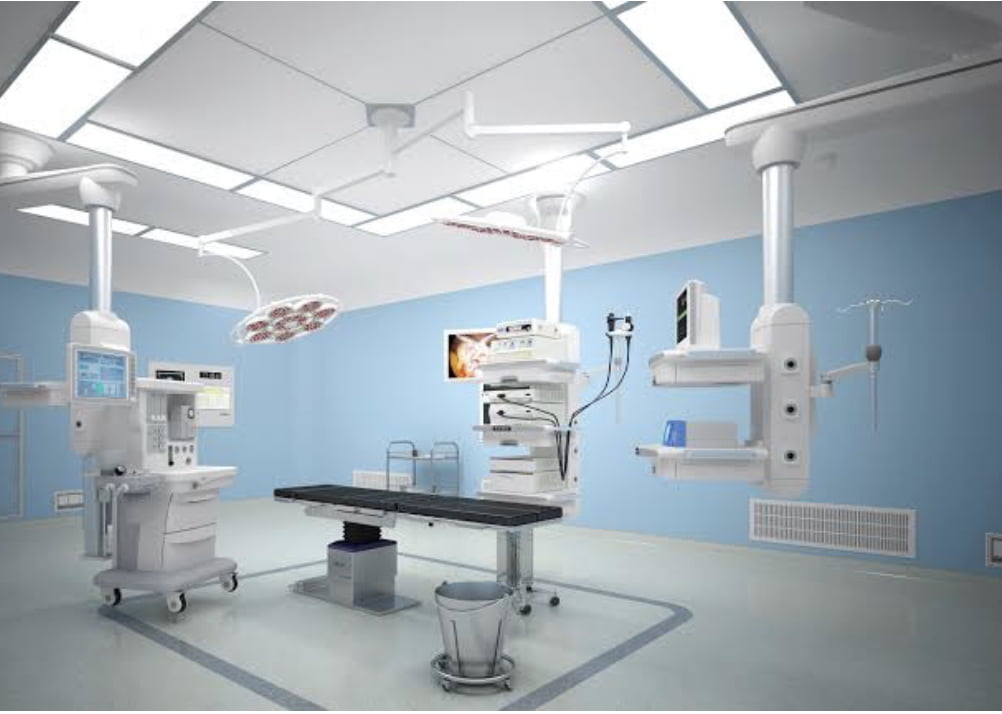
Reading Time: 3 minutes
NABH Guidelines for Modular Operation Theatre: Ensuring Safety and Quality in Healthcare
In the pursuit of delivering high-quality healthcare services, the National Accreditation Board for Hospitals and Healthcare Providers (NABH) plays a crucial role in setting and overseeing accreditation programs and quality standards for healthcare organizations in India.
Among the various areas of focus, the accreditation of operation theatres (OTs) holds significant importance.
These spaces are where medical professionals perform critical interventional procedures in a sterile environment.
To ensure patient safety and infection control, NABH has set specific guidelines for Modular Operation Theatres.
Understanding NABH and its Standards NABH is responsible for the continuous upgradation of standards for healthcare organizations every five years, encompassing various aspects such as maintenance, personnel hiring, and the operational flow of healthcare facilities.
By adhering to NABH guidelines, hospitals and healthcare centers aim to make smart investments in their infrastructure and service delivery.
Types of Modular Operation Theatres :
Under NABH guidelines, Modular OTs are classified into two types:
Type A (Super-Speciality OT):
This category caters to surgical procedures that include complex specialties such as neurosurgery, orthopedic surgery, transplant surgeries, and other high-end medical interventions.
Type B (General OT):
General OTs are designed for less critical surgeries, including day-care procedures, IVF, ophthalmology, and other general medical proceedings.
Values Defined under NABH Standards for Modular OTs:
NABH emphasizes certain values and principles that need to be incorporated into the functioning of Modular OTs:
Provision of Value-Added Services:
Modular OTs should offer credible and valuable services to patients and healthcare providers. Constant Improvisation:
There should be a continuous effort to improve the services and overall functioning of the Modular OTs.
Transparent Communication:
Stakeholders, including patients and medical personnel, have the right to access complete information and maintain open communication.
Incorporation of Creativity and Learning:
To enhance the quality of services provided, there should be a constant emphasis on incorporating creativity and learning processes.
Design Considerations for Modular Operation Theatre:
NABH guidelines outline essential aspects that should be considered when planning the design of a Modular OT:
Dedicated Air Handling Unit (AHU):
Each Modular OT should have a dedicated AHU (Air Handling Unit) that is not interconnected with air conditioners from other areas to maintain air quality and prevent cross-contamination.
Elimination of Split or Window A/C:
OTs should not have split or window air conditioners, as they can become potential breeding grounds for microbial growth and infections.
Antifungal and Antibacterial Paint:
The paint used in Modular OTs should be antifungal and antibacterial to minimize the risk of infections.
Automatic and Touch-Free OT Doors:
OT doors should be automatic and, if possible, touch-free to prevent unnecessary contact and maintain a sterile environment.
Cleanroom Lights:
The general lights used in the OT should be of cleanroom quality to ensure proper illumination during surgical procedures.
Air Conditioning Guidelines for Modular OT:
Manufacturers of Modular OTs must adhere to specific guidelines during the installation of air conditioning systems:
- Standard Occupancy and Equipment Load: The standard occupancy should range from 5 to 8 people, and the equipment load should range between 5 to 7 kW, with an additional 1 kW for lighting load. For super-speciality OTs, the load can be extended to 7 to 9 kW.
- Humidity and Ambient Temperature: Special care should be taken to regulate humidity and ambient temperature within the OT, ensuring a sterile and comfortable environment for surgical procedures.
Requirements for General OT NABH guidelines for a general OT include the following factors:
- Air Change Per Hour: According to international guidelines, a minimum of 20 air changes per hour is recommended, but this can vary based on location and biological load. Out of these, at least 4 air changes should be fresh air.
- Positive Pressure: It is crucial to maintain positive pressure between the OT and the outside areas to prevent the entry of outside air into the OT zone. A minimum pressure of 2.5 Pascal should be maintained. Air Filtration:
- OTs should have well-maintained filtration systems with appropriate efficiency levels.
- Humidity and Temperature: The OT’s temperature should be around 21℃ (+/-3), and relative humidity should be between 20% to 60%.
- Monitoring devices should be installed to maintain optimal temperature and humidity levels.
System Maintenance in Modular OT:
NABH OT Guidelines Regular maintenance is essential to ensure the efficient and safe functioning of Modular OTs.
Some key maintenance standards include:
Continuous Operation of AHU Blower: The AHU blower should be operational round the clock, even during non-functional hours.
Installation of Variable Frequency Devices (VFD): VFDs can be installed for energy conservation.
Validation of System: The OT system should be validated based on ISO 14664 standards, including temperature and humidity checks, air change rate calculations, pressure differential levels, and validation of HEPA filters.
Preventive Maintenance: Regular preventive maintenance, including cleaning every 15 days, should be conducted as per the guidance of Modular OT manufacturers.
In conclusion,
adhering to NABH guidelines for Modular Operation Theatres is essential to ensure the highest standards of patient safety, infection control, and overall service quality in healthcare facilities.
By following these guidelines and working with trusted modular operation manufacturers, healthcare organizations can create state-of-the-art facilities that optimize surgical procedures and promote positive patient outcomes.

2 Comments
I am extremely impressed with your writing skills and also with the layout on your blog. Is this a paid theme or did you modify it yourself? Either way keep up the nice quality writing, it is rare to see a great blog like this one nowadays..
Hey there! I know this is kinda off topic however , I’d figured I’d ask. Would you be interested in exchanging links or maybe guest writing a blog post or vice-versa? My blog goes over a lot of the same subjects as yours and I believe we could greatly benefit from each other. If you happen to be interested feel free to shoot me an email. I look forward to hearing from you! Excellent blog by the way!